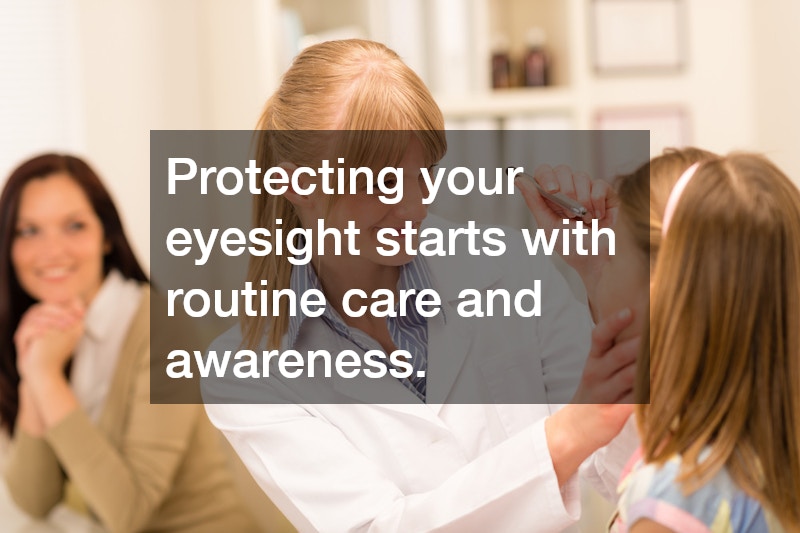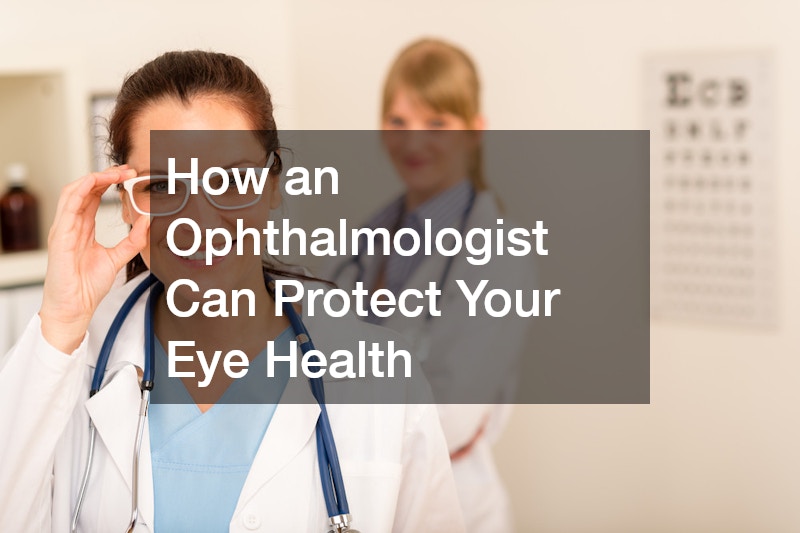Good vision is essential for everyday life, yet many people neglect regular eye care. The eyes are delicate organs that require professional attention to stay healthy and prevent long-term issues. Here we will explore how an ophthalmologist helps protect your vision, and why routine exams are key to early detection and prevention.
Many eye conditions develop gradually, without obvious symptoms in the early stages. By the time vision changes become noticeable, damage may already be significant.
Regular check-ups play a vital role in identifying these problems early. Prioritising eye health not only preserves sight but also supports overall well-being and quality of life.
Understanding the Role of a Medical Eye Specialist
An ophthalmologist is trained to diagnose, treat and manage a wide range of eye conditions. Unlike optometrists, who mainly focus on vision correction and eye testing, these specialists are qualified to perform surgery and treat complex diseases affecting the eyes.
They can detect early signs of conditions like glaucoma, cataracts and diabetic retinopathy—many of which develop without symptoms in the early stages. These diseases, if left untreated, may lead to irreversible vision loss.
These specialists also manage injuries and infections, offer post-operative care and provide solutions for refractive issues that cannot be corrected with glasses alone. Their expertise covers both preventative care and complex treatment plans, ensuring patients receive timely, effective support for a wide range of conditions.
Early Detection & Prevention of Eye Diseases
Regular eye exams are crucial to detecting issues before they become serious. For instance, glaucoma is often called the ‘silent thief of sight’ because it can cause significant damage before symptoms appear. A detailed eye examination may reveal raised eye pressure or changes to the optic nerve well before vision is affected.
Cataracts develop gradually and can lead to blurry or faded vision over time. While not painful, they can significantly affect quality of life. Surgery is often recommended when vision becomes impaired, with excellent outcomes when performed at the right stage.
People with diabetes are also at higher risk of developing diabetic retinopathy. Routine monitoring helps catch this condition early when it can still be managed effectively with medication or laser treatment.
Other chronic eye conditions, including macular degeneration, also benefit from early detection. While some types cannot be cured, early diagnosis helps slow progression and supports better outcomes.
Advanced Exams & Personalised Treatment
Modern eye care involves more than reading letters on a chart. A specialist will assess eye pressure, examine the retina and optic nerve and use imaging technology such as OCT (optical coherence tomography) to evaluate the deeper layers of the eye.
These diagnostic tools provide a clear view of structural changes that would otherwise go unnoticed. From this, a tailored treatment plan can be developed—whether it involves medication, laser therapy, surgery or ongoing monitoring.
This level of precision not only ensures accurate diagnosis but also reduces the risk of complications by allowing timely intervention.
Eye Health Education & Daily Protection
In addition to clinical care, eye health professionals also provide practical advice. Simple daily habits can greatly reduce the risk of developing problems later in life.
A diet rich in leafy greens, nuts, oily fish and colourful fruits supports vision by delivering antioxidants and essential nutrients. Wearing sunglasses that block UV rays helps protect the eyes from sun damage, which can accelerate cataract formation.
Taking breaks from screens every 20 minutes can reduce digital eye strain—a growing concern in today’s work environments. Smokers are also at higher risk of eye disease, and quitting significantly improves long-term eye health.
Wearing protective eyewear during sports, gardening or construction work also prevents injury, which remains a common reason for emergency eye treatment.
When to Book an Eye Exam
Many people wait until symptoms appear before seeking help, but routine checks are just as important. Adults over 40 should book regular eye exams, even if their vision seems fine. Age-related eye conditions often develop without early warning signs.
Those with diabetes, high blood pressure or a family history of eye disease should be especially vigilant. If you notice changes such as sudden blurring, eye pain, floaters or flashes of light, seek immediate attention.
Children should also be examined early, as vision issues can affect learning and development. Early diagnosis can correct or manage conditions before they become more serious.
Protecting your eyesight starts with routine care and awareness. A specialist trained in diagnosing and treating eye conditions plays a critical role in preserving vision and supporting lifelong eye health. From advanced exams to tailored treatment and practical advice, the support they offer goes well beyond just checking your glasses.
Regular check-ups with a qualified ophthalmologist can catch conditions early and provide the guidance needed to maintain clear, comfortable vision. Don’t wait for symptoms—book a professional eye exam and take a proactive step towards healthy sight for life.
.

